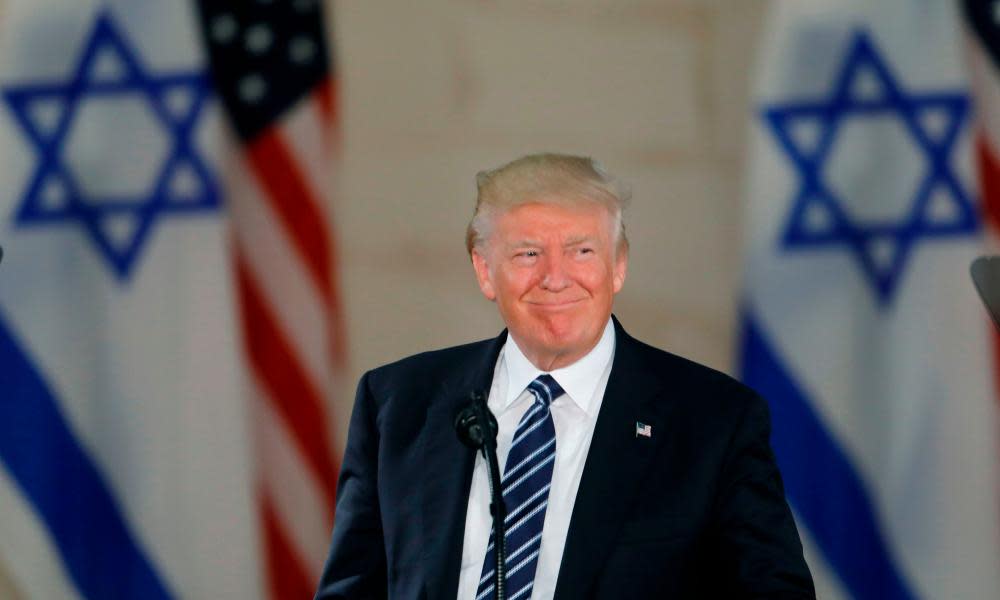America is retreating from world affairs and circling the wagons…

America’s ambivalence about engagement with the world beyond its shores is nothing new. Isolationist instincts are deeply rooted in the national psyche. Large constituencies opposed US involvement in both world wars. Donald Trump’s “America First” campaign was the most recent manifestation of a longstanding desire to avoid the “foreign entanglements” that the first US president, George Washington, warned against in his 1796 farewell address.
Yet, as US power expanded, this yearning for separateness grew increasingly at odds with another national urge – to demonstrate America’s pre-eminence, and propagate its values and interests, through global leadership. This process climaxed in the early 1990s when America’s main rival, the Soviet Union, imploded and the US claimed the mantle of sole superpower.
A quick glance at China’s recent progress suggests that claim was premature. And perhaps it’s partly because the US now faces serious challenges that it is pulling back, metaphorically, and circling the wagons. Trump’s unveiling last week of an elaborate missile defence shield, and his insistence on a border wall with Mexico, symbolise this shifting mindset.
But the old ambivalence and ambitions persist. A tour of Arab capitals last week by Mike Pompeo, the secretary of state, came against the backdrop of the US troop withdrawal from Syria. The Saudis fear, with good reason, that this retreat presages a broader disengagement. Trump, after all, is frank about his wish to exit “unwinnable” foreign wars in the Middle East and Afghanistan.
The signals from Pompeo were deeply contradictory. He used a speech in Cairo to portray the US as a dependable, ever-present “force for good” in the Middle East, always ready to stand by its partners – especially in confronting Iran. “Pompeo’s remarks were full of the kinds of anecdotes and flowery rhetoric only a quintessential American exceptionalist could love,” noted analyst Daniel DePetris. In other words, the Pax Americana was alive and kicking.
That contention is difficult to square with recent developments, notably Washington’s simultaneous fuelling and neglect of the conflict in Yemen. It took the Saudi regime’s murder of journalist Jamal Khashoggi to finally focus attention on Trump’s support for Riyadh’s devastating military campaign there. Only when wider US interests were threatened did Pompeo step in, offering belated support for a ceasefire and UN-led peace process.
Now, as Khashoggi-related pressure on Trump’s principal Arab ally, the Saudi crown prince Mohammed bin Salman, is easing, the US government’s gross insouciance is once more apparent. The Yemen talks are close to collapse; renewed clashes are reported; beleaguered civilians remain in dreadful peril. But America is doing nothing practical to help, blaming Iran while leaving it to the UK to draft a new UN resolution.
The fantasy of a renewed Israel-Palestine peace process seems increasingly a smokescreen for Trump's utter indifference
Nowhere is America’s two-faced approach more evident than in Israel-Palestine. Trump has repeatedly boasted of a masterplan for resolving the 70-year-old conflict. His son-in-law, Jared Kushner, is in charge, despite lacking diplomatic and conflict-resolution experience. Israel’s UN ambassador, Danny Danon, has suggested the much-delayed plan will be revealed this month.
Yet still silence reigns – and suspicion grows that the fantasy notion of a renewed, impartial peace process is a smokescreen to disguise Trump’s utter indifference. Actual US policy over the past two years, as opposed to pretended even-handedness, has been to give Benjamin Netanyahu’s rightwing government almost whatever it wants, from recognition of Jerusalem as Israel’s capital to a free hand in Syria. Meanwhile, lethal health, funding and security crises in Gaza pass largely unremarked, so deadeningly familiar has the impasse become.
Trump’s unusually irresponsible, inconsistent behaviour has undoubtedly highlighted the ambivalence always inherent in America’s world view. He spoke passionately last year about an “evil and despicable” chemical weapons attack by the Assad regime on Syria’s civilians, and fired cruise missiles as punishment. But it was plainly a one-off. American disengagement from the Syria-Iraq theatre, and the fight against Islamic State, is the dawning geopolitical reality.
Nor is Trump’s doublespeak confined to the Middle East. The big news in Washington this weekend is the announcement of a second, ego-boosting summit between Trump and North Korea’s Kim Jong-un – despite a lack of substantive progress on the key issue of denuclearisation. The US president claimed an historic breakthrough in Singapore last year. But, as is usual with him and present-day American foreign policy, it was all talk and no trousers.

 Yahoo News
Yahoo News 
